Ultra Naté on her longstanding “Free” reign, the evolution of EDM and the importance of being schooled by The Ballroom…
By Elio Iannacci
Known as the holder of one of the most iconic Pride anthems of all time, Ultra Naté’s “Free” has been able to solidify her status in clubland for nearly 25 years. Her well-earned global smash, which landed on top ten charts across the world, came to the 54-year-old dance singer/songwriter/Dj after she released her third album of 1998, Situation Critical. “Free” followed a plethora of bass-heavy bangers, hot tracks including “Desire”, “Found A Cure”, “Brass in Pocket” and her radically reworked 2006 cover of The Pointer Sisters “Automatic.” Yet there is so much more to Naté than her haute hits. The Baltimore-born talent’s origin story is all about Naté traversing and representing in a series of golden eras of EDM. Her most powerful recordings may be steeped in House but Naté knack for tapping into multiple genres of dance music over the course of her 30-plus-years career, has enabled her to empower her LGBTQIA+ fans in the process. On the heels of her headlining appearance at Toronto’s Sugarland: Let There Be House Beach Party on June 26, the acclaimed artist opens up on her ever-enduring relationship with the dancefloor.
Before you recorded your first album in 1991, you began to train to be a psychotherapist. Did any of what you learned help you in dealing with all the artistic egos and audiences that would follow?
It really helps to be extra. It also pays to understand what extra people all are about. I found a lot of common ground with the energy that was in nightlife. It appealed to the creative in me—which I didn’t know at the time was so seriously in there. I think where the whole idea of wanting to go into a healthcare field initially and helping people was a step toward club culture in many ways. You have to be a bit of an empath so that you can feel what’s going on with other people and how things are affecting their lives so you can help them move through their difficulties.
Do you still see a medicinal side to what you do?
Oh yes, what I do is very cathartic for people. I help people tap into their emotions and think deeper about things that they may not be aware of that’s happening in their lives. We all need a voice of encouragement in a dark moment and I am happy to be that voice.
One of your biggest hits is called, “Free”. It is remixed every year after year… with, or without your consent. Do you know how many times it has been reworked?
I can’t keep up. I would say it gets a new mix throughout the year—sometimes monthly, sometimes weekly! I lost count of the amount people around the world who are doing their own interpretation of it and that’s really beautiful because it has lived through generations now! It’s a little strange now—some 25 some years later. I don’t even have a clue as how many songs may have been reinterpreted, reworked, re-imagined, revised in the digital space. I’m blessed people are still interested in it and DJ’s and producers as well as dancers, drag queens and so many others are putting their stamp on the song in so many ways. We’ve actually done an official version of a new rework, re-imagination of Free to celebrate this 25th anniversary. It’s actually coming out, I believe on the 17th of this month. So by Pride weekend in Toronto, it will be out, the cat will be out the bag…this is a collaboration with Icona Pop from Sweden!
I’m interested in your first encounter with house music. How did this genre of music flick the on switch in you?
The first time I went to a club was Odell’s, a club in Baltimore. I was still in high school…somewhere around ’85 or ’86. It was a Thanksgiving holiday and everyone in the room was locked into this energy. I remember it being so empowering—especially when the beats started to thunder. It felt like they wrapped around me, hugged me. The sound was all analog at the time—before digital took over—so the warmth and the resonance of the bass covered every cell of my body. I had no idea that songs by Jomanda and Ten City would change the trajectory of my life but they did. I soon found out that LGBTQ+ people who started taking me under their wings got a secondhand version of what Paradise Garage. Odell’s was doing for us what the Garage was doing for the community in New York City.
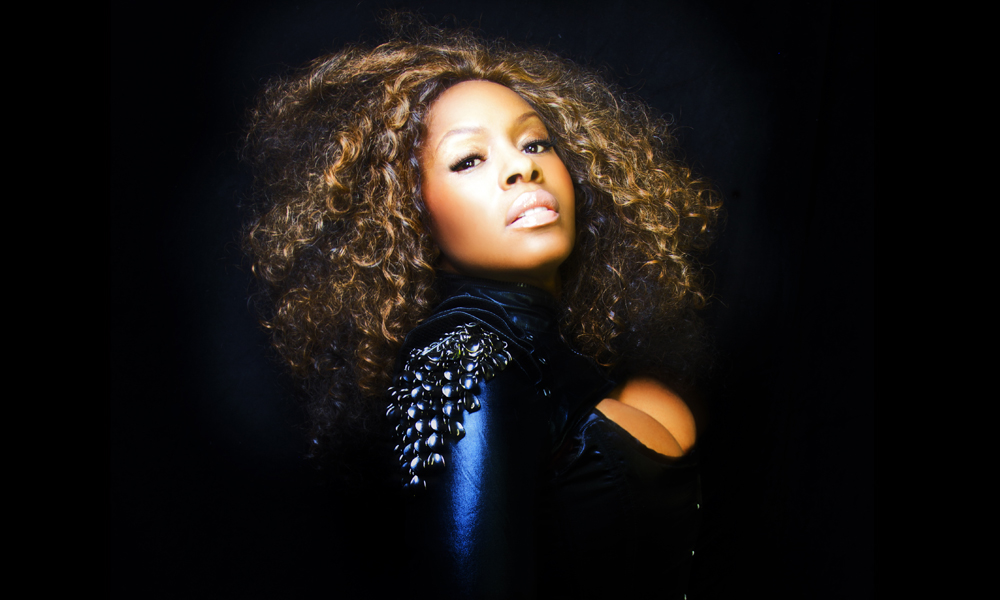
Shortly after, you started popping up the ballroom scene. What did the legendary Houses have to offer you as a performer?
Everything. It was like school. That scene came simultaneously with discovering house music because a lot of my friend groups were born out of that Gay club scene. These were mostly Black Gay kids from Baltimore, inner city kids, who started forming families. The Baltimore chapter House of Revlon embraced me from the get-go.
It’s interesting because so many of your fans have been asking why you haven’t been a guest judge on Legendary since you were an artist who was raised by the ballroom. The House of Revlon was actually a contender in season 3.
I’ve been hearing that. You’re like the fourth or fifth person in the last two months to ask me that but yeah, I was there and saw it all. We partied every weekend and hung out and were some of my best friends at the time but they also were also very talented: image a dozen or so really beautiful young men, knowing hair, makeup, costume design and the art of captivating a crowd. Whether it was snatching trophies in categories or just looking like amazing fem queens or Butch Queens in and outside of the balls, they killed it.
How did collaboration between you and the House occur?
Once I started making records, they were the first ones to gather the doll for her first performance! The Revlon kids sorted my hair, did my makeup, made the very tiny dresses that I performed in but when it came time to actually be on stage for the first time, it was emulating what I had already absorbed from them that was the biggest inspiration. Ballroom taught me the stage is runway and an opera…you must be present to be presented. You must give it your all and you could not show that you were nervous.
That is still a very strong part of the foundation of my artistry, Ballroom is my home base because the House of Revlon taught me be open to my expression. No rules. No judgment. It was about just living in your truth. They told me to look and sound however I wanted to because everybody was expected to accept you.
Your song, “Supernatural”—which was released last year—sounds like classic ballroom. It’s almost like you’ve done a full 360 and come back to revisit and modernized your past. In your mind, is ballroom and vogue culture, the original TikTok and YouTube?
Absolutely. Refences and looks everywhere, at every turn! It was definitely about the originality more so I think than it is today. I think there’s a lot of copying going on or where people trying to just follow whatever is cool at the moment. Remember: there was no template back then and no guides to look to. A lot of things in my career happen in a cycle and come back around, but this was the revolutionary moment. That level of experimentation and freedom is different from what people are seeing now because it’s all funneled through these social networks instead of being raw energy that just happens authentically on the dance floor. I love that some of those sounds and looks are hot again and I love how Supernatural freshens up my past and gives it a modern perspective… because you don’t want to be lost in nostalgia.
Where did you first witness your music applied on ballroom dancefloor or category?
With songs like “Scandal” and “It’s Over Now” — they made it to the ballrooms because those basement boy beats [tracks were produced by Jay Steinhour, Teddy Douglas and Thommy Davis—aka The Basement Boys] were very in-your-face. They had a lot of edge to them but they have stood the test of time.
For many, the title track to Parker Posey’s Party Girl movie in 1995 was seen as your first big break. What was being a part of that iconic film like?
Parker was the indie darling of New York City at the time—the pinnacle of cool girl—and I was a big fan. I went for the gold and tried my hand at writing a song around the movie title. The story is based on what the movie scenes, so I wanted to make it like as real, in your face and underground as possible. I think it still sounds so good. It went on to be embraced wholeheartedly in New York and in urban dance scenes because the movie did really well. I was in Europe a lot so when I came back to the states, I couldn’t believe what happened.
New songs like “I’m Too Sexy, Touch This Skin” are titled after dialogue coming from legendary drag queen Venus Extravaganzas in Paris Is Burning. Was this as a deliberate homage?
Absolutely. When Quentin Harris and I were working on music for the Black Stereo Faith album, I told him I wanted to do a cover of that Right Said Fred song but in a completely different way. He was like “you’re kidding, right?” but I got my way because I told him I wanted to flip it and make it sleazy old school. More New York underground not super candy pop—like the original. Once Quentin started working on it on the beats and since we watched Paris Is Burning seven billion times, Venus just sort of showed up as an idea and we ran with it. It was like we were channeling her.
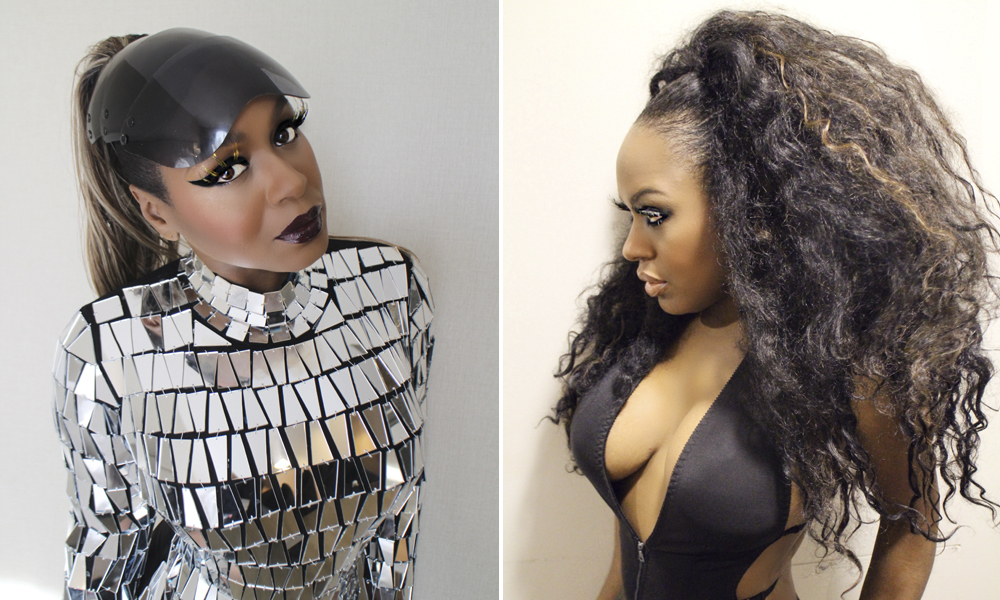
When your album Situation Critical was released, so many hip hop and soul music artists like Mary J. Blige were not interested in getting their songs remixes for house music clubs. It was seen as sacrilege and a lot of the industry disparaged dance music. Did you feel the brunt of that negativity?
I didn’t. I couldn’t. It wasn’t important to me. I had no thought that I would ever end up an artist in this community of amazing people so I ignored the mainstream and felt the blessings in front of me. A series of amazing things happened in a way that could not be a coincidence. They landed me a major label deal and took around the world and allowed me to make a life out of art. My own thoughts, emotions and ideas suddenly were providing a living, and experiences that I’ve never thought I would have. Any kind of negative light was ridiculous. True, I started at a time when major labels were discovering house music and giving it a real commercial platform but you have to kind of understand where the music was at that time. Most people that were in R&B did look down on House music because that’s how it was positioned. It wasn’t thought of as a viable form of music at the time. That’s not unfair for Mary or anyone that felt that way to feel that way but it was a really a personal choice.
Although you were too young to be dancing at the Paradise Garage, you wrote about the club in the book, Lady of the House: Stories of Women in Dance Music. How could a place you never go on to inspire you so much?
All of the DJs from the Garage, they’re my mentors and friends. To know of this legacy and how impactful it was to the whole culture that I ended up being knee deep is to be in a constant state of inspiration. History can inspire. So many of the Garage icons become my friends, my mentors, my peers, collaborators—from Frankie Knuckles to Louie Vega, all were creating the culture that was really became my training wheels.
The Paradise Garage was called “church for fallen people” by DJ Frankie Knuckles. On your album Hero Worship, you have a really soulful song called “God’s Message.” How does spirituality seep into the way you create dance music?
With that track, I’m taking it back to early songs I made like “Rejoicing” — which is filled with what we call the Gospel Stomp: meaning heavy base and rich vocals. We wanted to create an urban church anthem without the fire and brimstone and make that gospel moment reflect the sermons what I grew up on. Choirs are a big part of my background. As kids, we would shout and praise and worship with music. It’s easy to translate that energy into a song and then into a club. For “God’s Message,” I had my girl Dawn Tallman in there doing backgrounds with me. You can’t front on Dawn. My spirituality is always really at the crux of everything that I do, because it’s part of what sustained me as a child, as I was growing up and dealing with whatever dramas and traumas that you go through as a kid and the choir would soothe them.
So many dance music singers who came to fame when you did—names like Kim English and Celeda —struggled with coming to terms with doing reconciling the hedonistic spheres of clubland and maintaining their spiritual and religion affiliations… partially because of so many traditional religious institutes have had history of being so anti-Queer. How do you do it?
Spiritual life has always been a part of what I do but it’s not something that I personally choose to ram down people’s throats. You can convey the sentiments and stories from a church without hurting or demeaning anyone. My grandmother used to say this all the time: eat the meat and spit out the bones. Take what makes sense and leave the rest. On the flip side, you can’t be afraid to be spiritual because a lot of people need it. My sound has a lot of Gospel vocal influence that’s something that I’ve never have shied away from, whether it’s in vogue at the moment or not.
What’s your performance strategy for your appearance at this year’s Pride in Toronto?
I’ve had a long lasting relationship with the audiences in Toronto. The trick is you’ve got to figure the balance between bringing the underground favorites and the big commercial, in-your-face dance chart numbers. Then there is the question of whether you perform the mixes to songs they love or go with that original kickup. I research the city I go to and the event that I’m heading so I get the vibe right.
Any advice to the next gen of dance artists?
Try to get to a point where you’re absolutely comfortable in your skin. I’ve lived just about every nightclub nightmare that you can think of so there’s no sense of thinking “this moment is going to make or break me.” Once you let go of that, you can just be so settled and in the pocket and comfortable in your space. I think that comes across more than anything in my work.
You’ve lived through so many fantastic eras of dance music. Ever thought about writing a book or screenplay about it?
Maybe. I don’t know how I would translate that. I guess it’s the same as what I’ve been doing as a songwriter. Many moons ago when I was a kid and in junior high school, my intention was to be a journalist before I decided I was going to be a doctor. I do have a new album due by the end of this summer. We’re trying to wrap up all of the production stuff now and get everything in the can. The title is called Ultra. After 25 years, I finally have a self-titled album! The producers are sick, I have Russell Smalls of the Freemasons, Quentin Harris again and Lem Springsteen from Mood II Swing. The first single, Miracle, just came out. It has this really dope Afro vibe and it was written with Gianni Romano and Emanuele Esposito from Italy. The sound touches on what was but is focused on what is. As usual, I’m bringing it back while moving it forward.
Ultra Naté will be performing at at Toronto’s Sugarland: Let There Be House Beach Party on Sunday, June 26. For more information visit: prismfesttoronto.com.

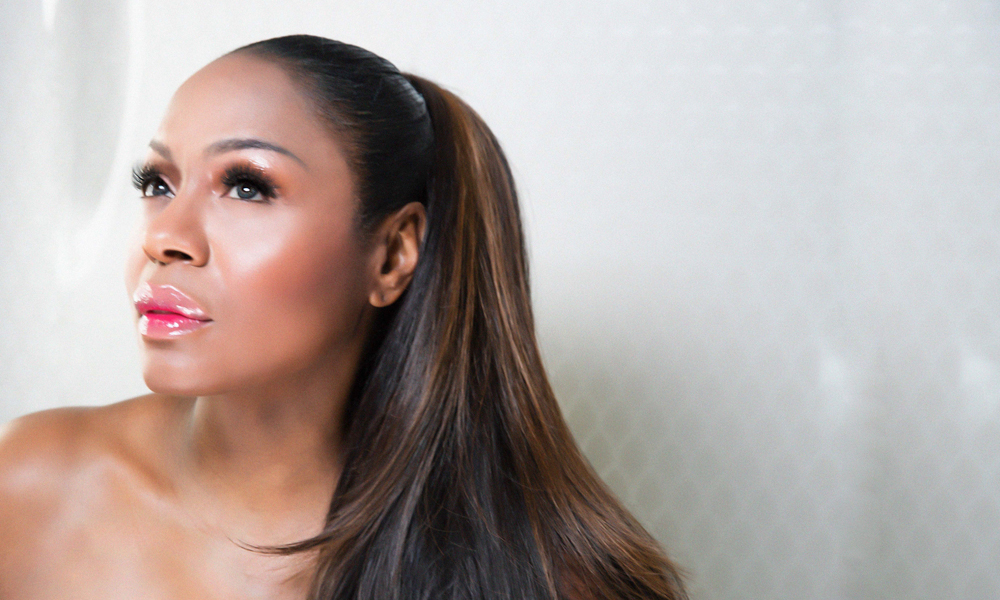
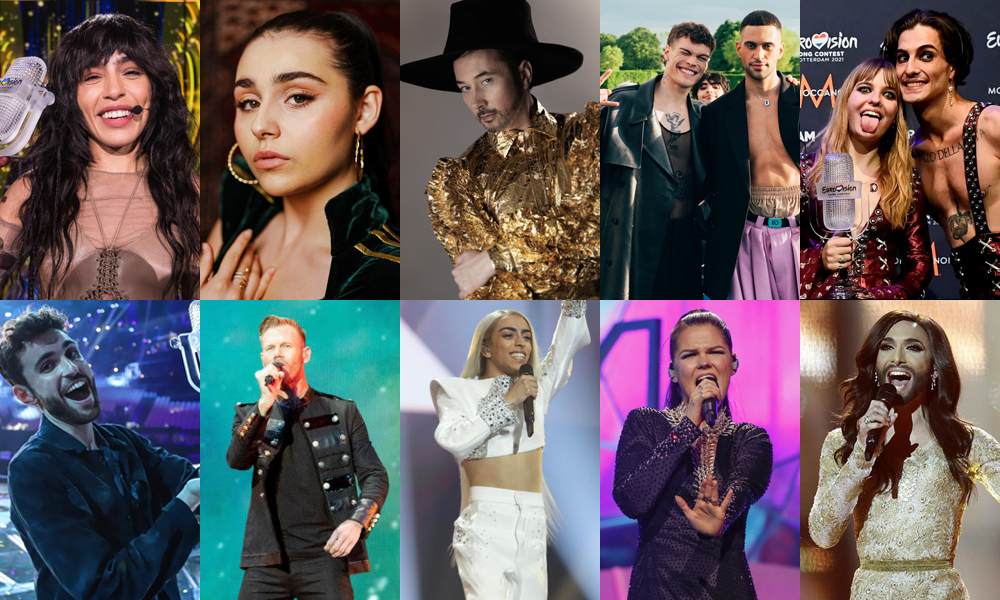
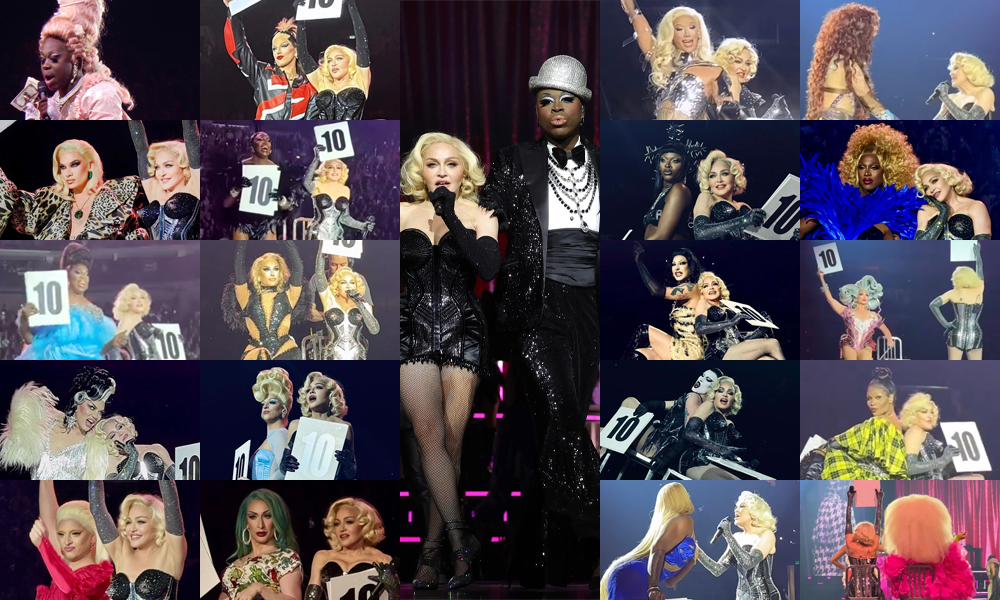
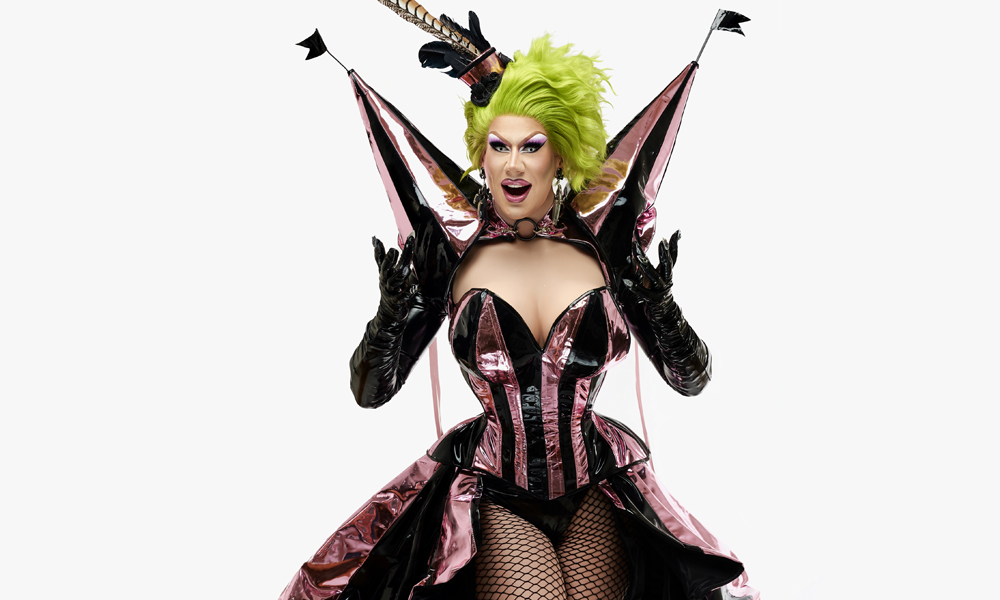

POST A COMMENT